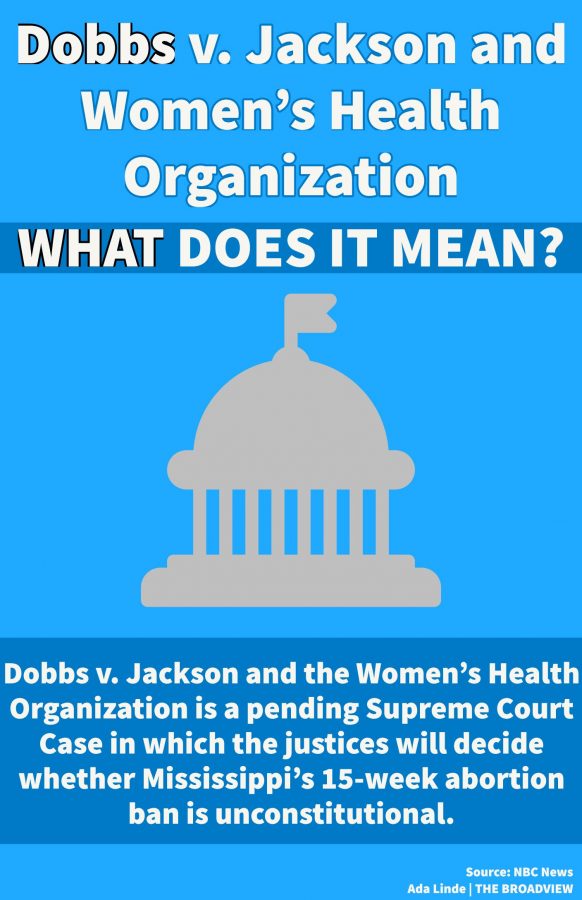Dobbs v. Jackson and Women’s Health Organization
Supreme court hears arguments about 15-week Mississippi abortion law
December 3, 2021
Supreme Court Judges heard testimonies from Mississippi state and Women’s Health Organization representatives yesterday during a hearing regarding Mississippi’s 15-week abortion law.
The law bans abortions if “the probable gestational age of the unborn human” is determined to be more than 15 weeks, with narrow exceptions for medical emergencies or “a severe fetal abnormality”, according to NBC News, and was passed by the state of Mississippi in 2018.
“Keeping this type of law is very dangerous because creating a restriction like this isn’t going to stop people from getting abortions,” sophomore Kate Richardson said. “Many people will likely continue to have abortions, but just resort to alternative methods which can be unsafe and unsanitary.”
One out of four women makes the decision to end their pregnancies, according to Center for Reproductive Rights Senior Director Julie Rinkelman’s testimony during the hearing.
“Since such a large amount of women every year try to get abortions, the ban would really affect so many of those people,” freshman Natalie Nakashita said. “I wonder if the fact that three of the Justices happen to be women would have an effect on the final decision.”
The judges, after hearing the testimonies, decide if they want to uphold the law, terminate the law and uphold the precedents, which include Roe v. Wade, 1973 and Planned Parenthood v. Casey, 1992, or terminate both the law and the precedents, according to history teacher Tom Apel.
“The Supreme Court is doing what they are constitutionally supposed to do, which makes this case more complex,” Apel said. “It’s not often that a very heated Constitutional debate happens right as I’m teaching about it in class.”
Viewers can watch a tape of the live hearing or read updates from NBC News and CNN. Judges will most likely make their final decision in the coming months, according to Apel.
“I’m interested about the outcome of this hearing because similar ones have passed in other states, such as Texas,” Richardson said. “I’m curious as to whether or not the Supreme Court will pass it because if they do, it may result in similar laws passing in other states.”










